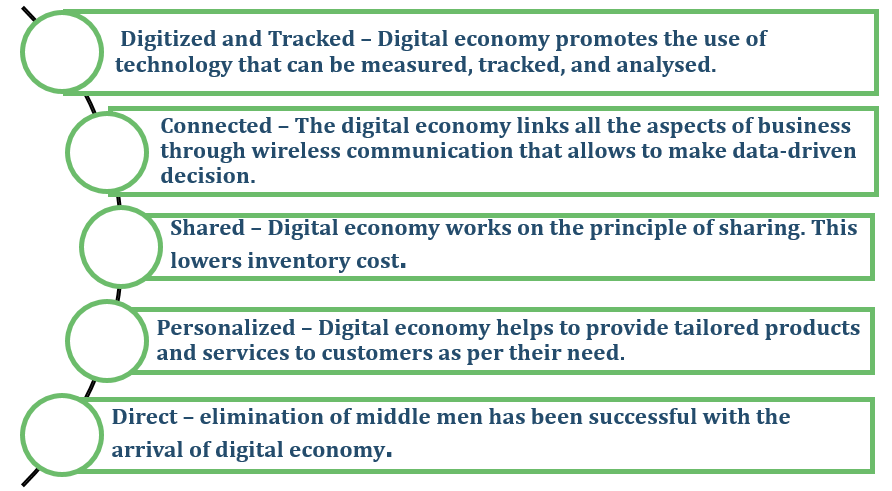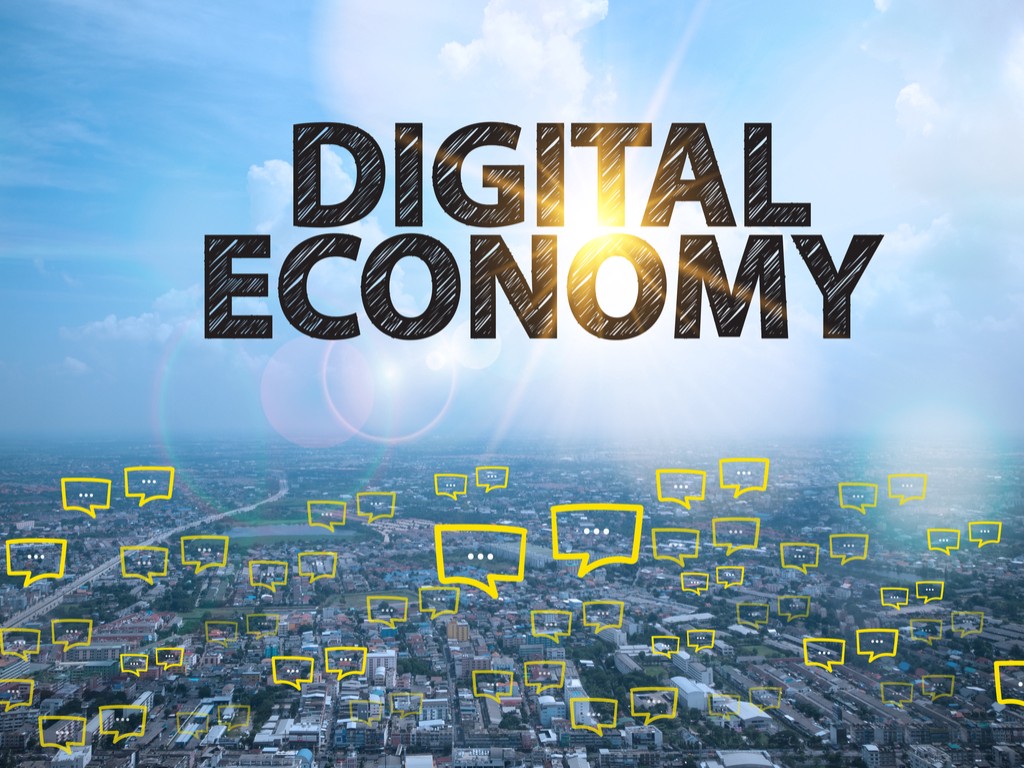Introduction: –
Digital Economy is an umbrella term which describes an economy that uses digitized information and knowledge as key factors of production. It is bringing changes in the conventional notions about how businesses are structured, how firms interact, and how consumers obtain services, information and goods. The digital economy can be defined as the economic activities resulting from the billions of everyday online connections among people, businesses, devices and processes. Hyperconnectivity can be said to be the backbone of the digital economy. Innovation in digital economy, allows the rapid development of new businesses and it can also quickly cause existing businesses to become obsolete. The businesses includes several varieties of e-commerce, app stores, cloud computing, online advertising, online payment services etc.
Components of Digital Economy: –
- E-Commerce:
Ecommerce refers to the buying and selling of products and services through utilization of internet and the transfer of money and data to execute these transactions. It has evolved to make products easier to discover, which ultimately uplifts the overall growth of business irrespective of its size.
- Cloud Computing:
Cloud computing refers to applications, services and data storage on internet connected via internet protocols which can be accessed remotely from anywhere. The frequent use of cloud computing is the Google Drive, which allows remote access of information and data to users.
- High Frequency Trading:
High Frequency Trading (HFT) is a method of trading which uses powerful computer programs to transact a large number of orders in fraction of seconds. It involves using sophisticated technology, including complex algorithms. This system improves market liquidity.
- Participative networked platforms:
It is mediator that enables users to collaborate and contribute to developing, extending on user created content. This includes various forms of media works and creative works such as blogs or Wikipedia pages. These activities are monetised by charging viewers for access or subscription basis. The data is sold to other firms or used for market research.
(This is an exhaustive list. There might be other components as well.)
Features of Digital Economy: –
Drastic upliftment in digitalization has given birth to digital economy. Which has changed the outlook of doing business. Such an economy has impressive features some of which are listed below:

Advantages of Digital Economy: –
- Transparency– Due to evolution of digital economy, majority of monetary transactions takes place through online mode. This reduces black money and corruption in market.
- Rise in Ecommerce –It gives boost to ecommerce, through adoption and adaption of internet by business sector. It not only promotes direct sellers but also supporting services like distribution, marketing, advertising.
- Digital Goods and Services – In digital economy, several commodities and services have been digitized. There is no longer need for tangible goods.
Disadvantages of Digital Economy:-
- Decrease in Employment – Due to increase in advancement in technology, the reliance on human resources reduces which in turn may lead to loss of employment.
- Lack of Experts –Digital Economy requires experts and trained professional to upkeep complex processes and technologies. These are not readily available in rural and semi-rural areas.
- Heavy Investment – increase Infrastructure, high functioning internet, strong mobile networks and telecommunication are key requirements of digital economy. In developing country like ours, it is a slow and costly process.
Conclusion: –
Management Digital Economy is continuously replacing and expanding traditional economy. The future of work, especially since Covid-19 has also contributed to the digital transformation of the economy. Innovation is the significant characteristic of the digital economy, which provides innovative minds to develop new ways to solve age old problems.
But it may have its own downsides. The fast changing process may be difficult for the business with lack of capital and resources. It may result into increase in unemployment. However with right vision and creative imagination, digital economy may help business to reach wide range of people and give them access to products and services.
(This article represents the views of the authors only and does not intent to give any kind of legal opinion on any matter)
Authors:
Hardik Patel
Partner| +919870738130 | hardik.patel@masd.co.in |LinkedIn profile
Kushal Mehta
Associate Consultant | +919930612247 | kushal.mehta@masd.co.in |LinkedIn profile
Shripriya Aithal
Associate Consultant |+918779984264|shripriya.aithal@masd.co.in|LinkedIn profile

